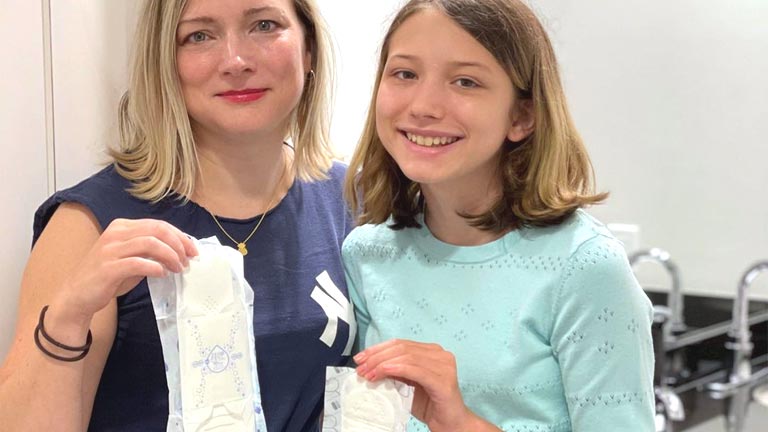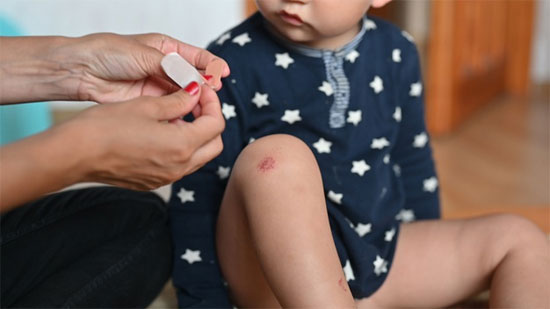
Getting your period for the first time can be a scary experience, but it doesn’t have to be. With the right support, it can be a positive and educational experience for your child.
Although preparing your child for their first period might seem like a scary task, we’ve compiled our top tips and tricks to help you tackle it with ease.
To educate your child on starting their period,
- Start Early
- Be Realistic
- Stock Up
- Focus On The Positives
- Speak To The Boys Too
1. Start Early
Reports have shown that the average age for a period to start is between 10 and 16 years old. This means that periods and menstruation need to be discussed often from a young age for your child to understand what is happening with their body, and how this might make them feel.
This will allow them to build confidence and be able to ask questions, which is one of the best ways to engage with the subject of periods.
If this was kept to a singular conversation, information may be forgotten, stress levels may be higher due to the single point of reference, and new symptoms may go undiscussed as they did not feel comfortable enough to ask.
2. Be Realistic and Honest
Periods are not perfect; they can be messy, come without much warning, or be earlier or longer than expected.
Many people with periods have anecdotes about bleeding through clothes or starting their period and having no pads, so it is important to share the sometimes harsh realities of the situation.
Be realistic with periods, and don’t hide the bits that could be embarrassing or messy- your kids will only feel shame later on down the road regarding these issues.
Teach your kids what to do when they are unprepared- teach them about the toilet paper wrapping method, teach them to be confident if there has been a leak, and most importantly to not feel shame.
You are going to be their first port of call for this education- if you start feeling embarrassed or ashamed, they will feel that energy and recreate it in their actions.
Do check such symptoms with your doctor if your child’s periods are extremely uncomfortable or longer than expected.
3. Stock Up
Stocking up on period products is a great way to get prepared for your child’s first period- the more products you buy, the more choice and variety they will have to learn about what is right for them.
Explore the options with your child- try pads and tampons that are for different flows, with wings or without, in different shapes and sizes to find what works best for them.
There are even options that are sustainable and environmentally friendly, such as period pants, which are designed to be reusable protection for your period. Not only do they provide a secure and comfortable fit, but they also offer five layers of protection.
4. Focus On The Positive
Periods can be uncomfortable and painful, but there are many ways to keep the situation positive and light-hearted. You can reiterate that your child is not alone, and focus on the positives.
Positives include your period alerting you to the health of your body. Also, it can bring great bonding moments between those on their period, from forming bonds in the bathroom stalls to bonding over syncing with your friends.
5. Speak to the Boys Too
Odds are your boys are going to encounter someone on their period at some point in their lives- whether it be through mum, sister, or friends.
Break the stigma for everybody- periods are no longer a hush-hush subject, they are natural and should be discussed openly.
For many years sex education was taught separately- causing more divides than necessary. Start by teaching all of your children about periods young- even if they will not get a period themselves, the knowledge is invaluable.
Conclusion
To conclude, period education is vital and can shape your understanding and relationship with your body for life. It is important to learn such information from a young age and to receive this information from a trusted source- such as their parents.
Don’t feel pressure to mess up or get things wrong- nobody’s perfect and neither are periods. Although they are different for everybody, allow your children to learn what is natural for themselves and preach the importance of being confident about starting their period.




